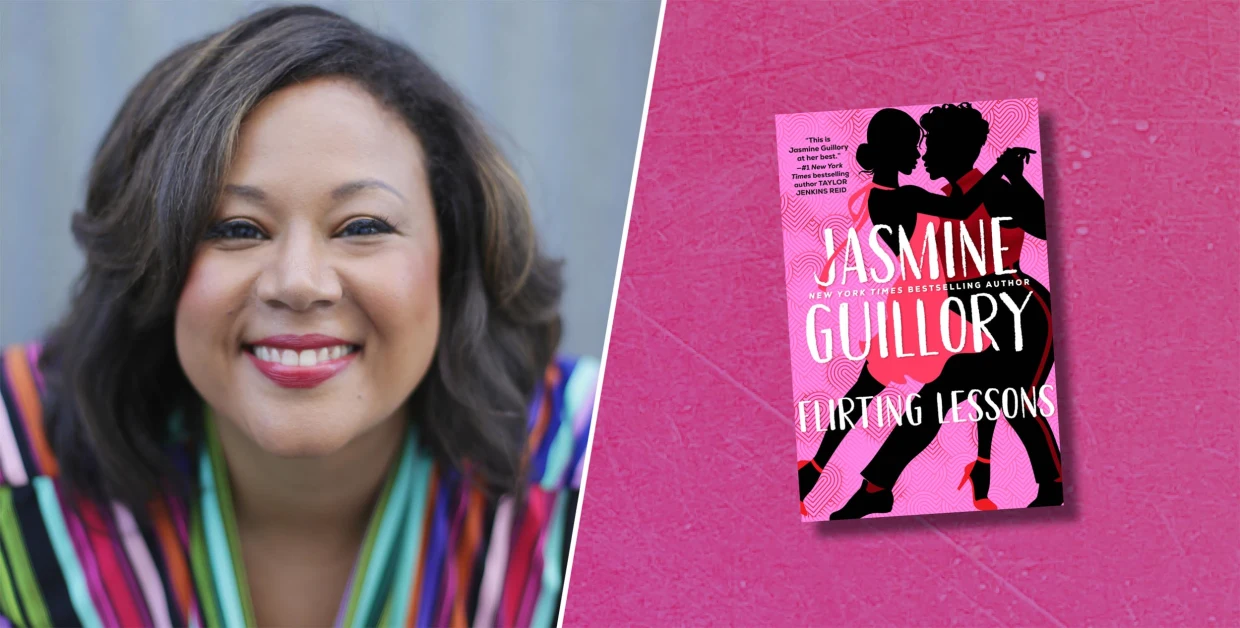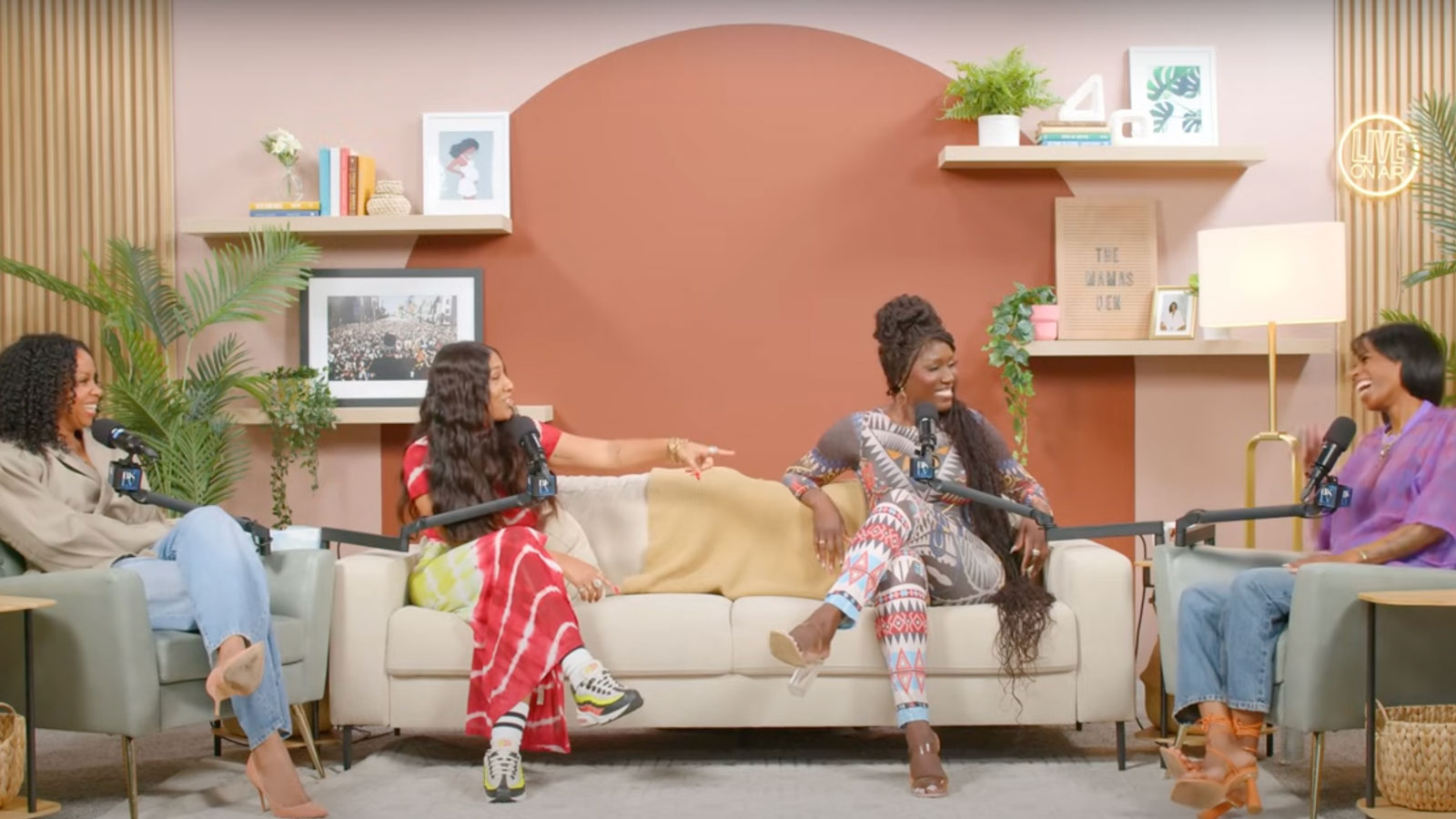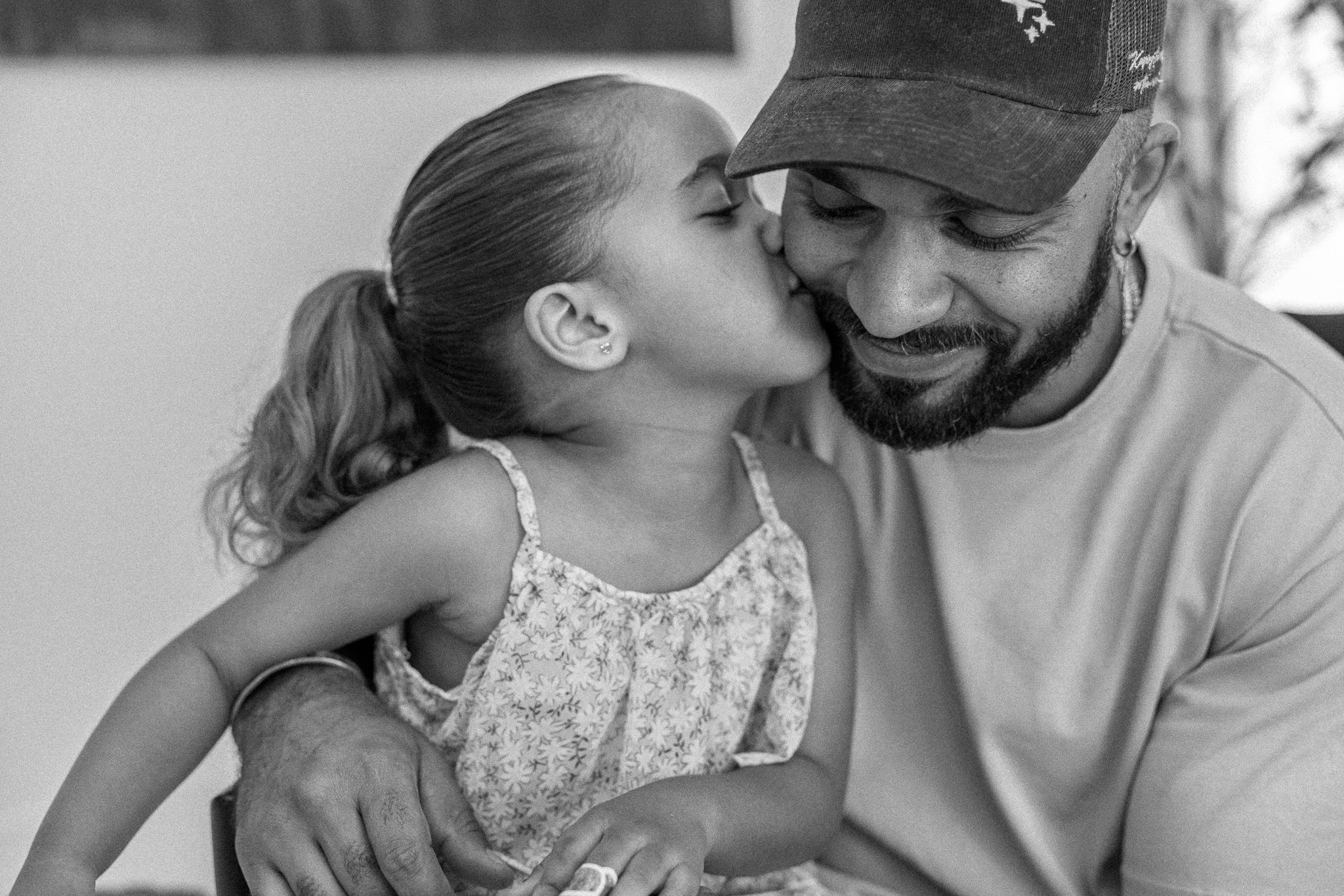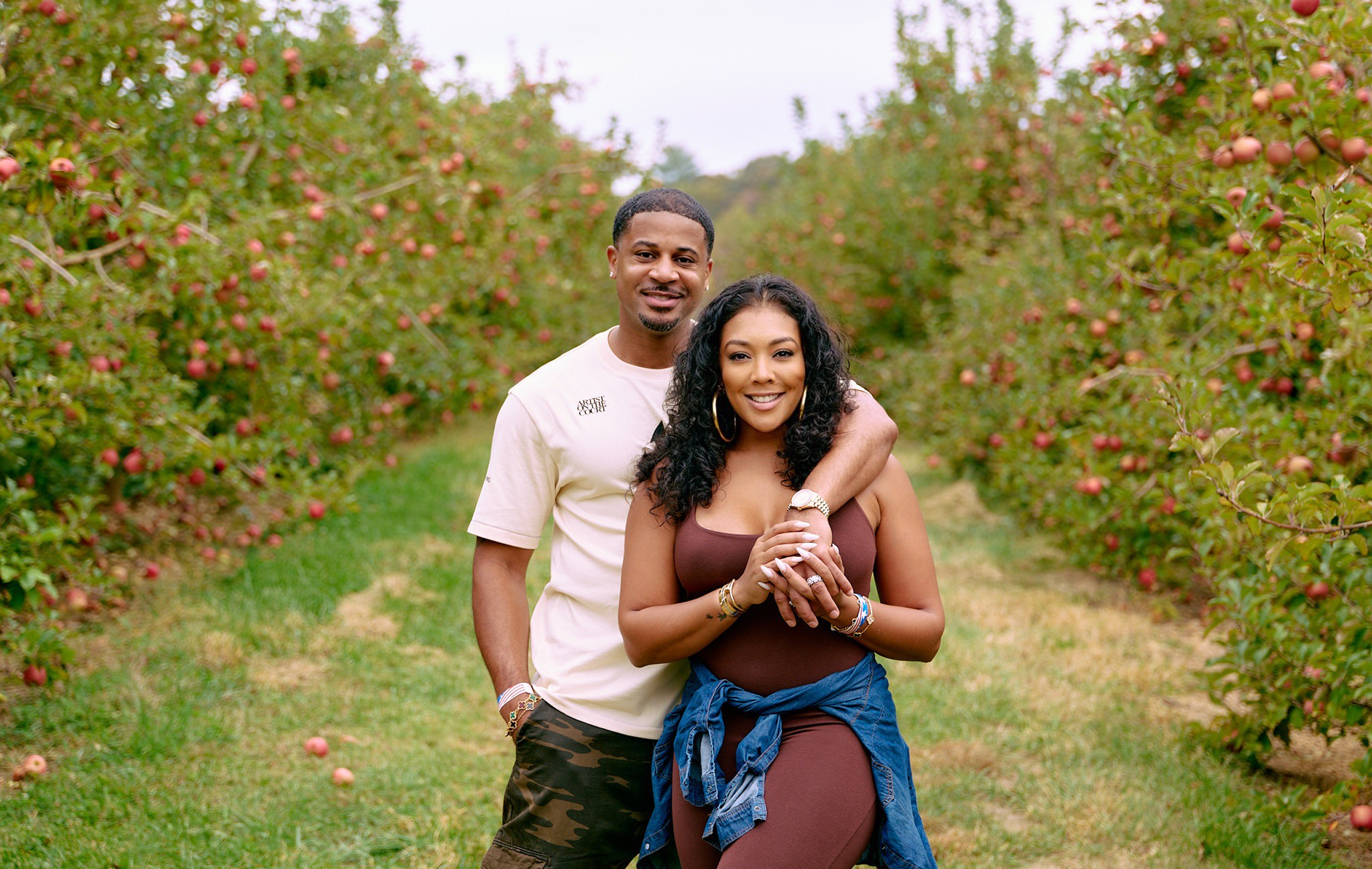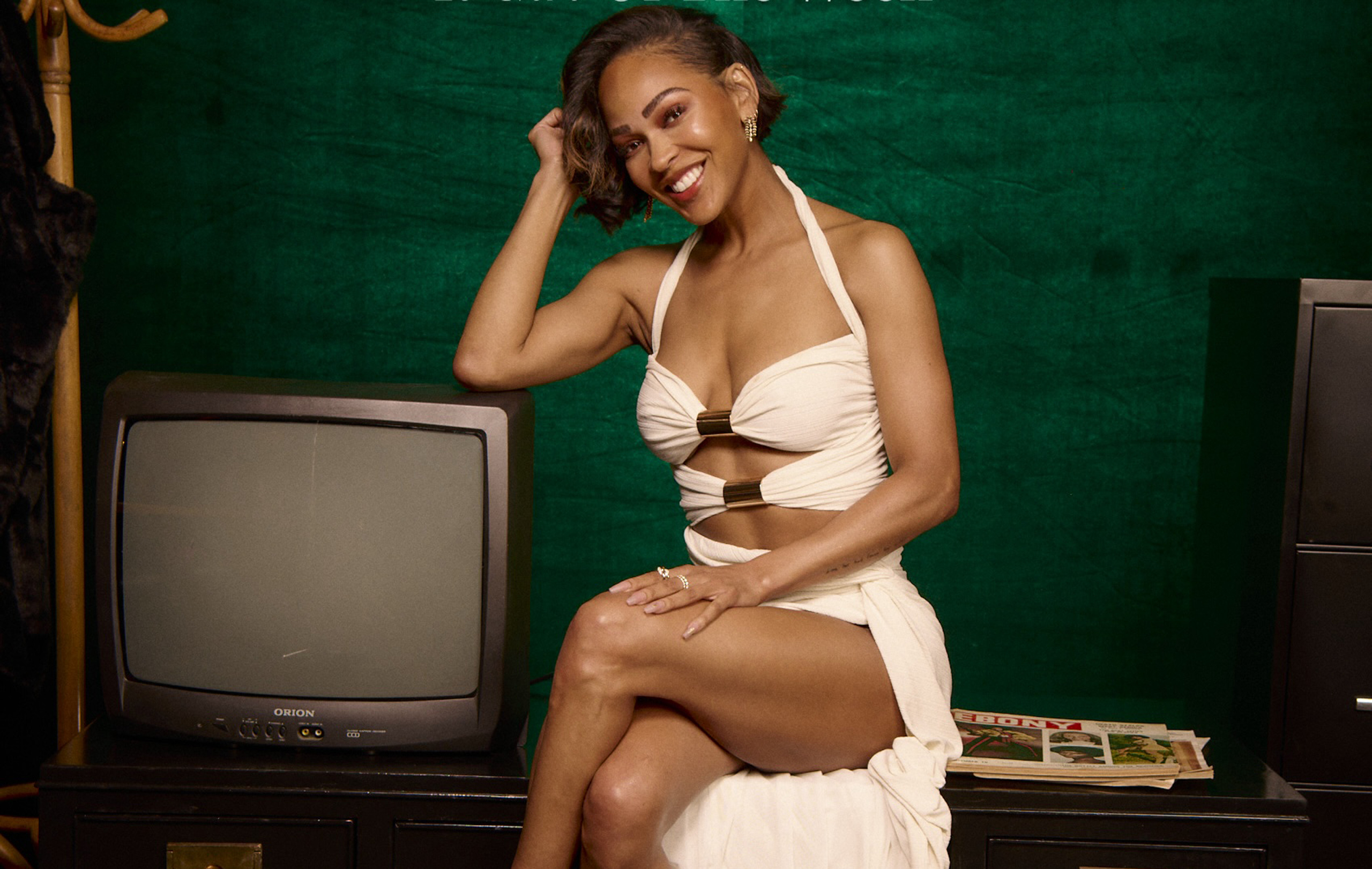
19050609_1886022851652601_4360436852587495424_n
Courtesy of Jasmine "JT" Carey
Her masculine presentation ruled her life. Then, her wife had a hysterectomy. Now, with carrying children left to her or a surrogate, she made a choice she never thought she would have to make.

Courtesy of Jasmine “JT” Carey
“Are you there, God? It’s me, Margaret. I just told my mother I want a bra. Please help me grow God. You know where.” I remember reading Judy Blume in 4th grade asking myself, “Is this what girls my age want?”
I prayed puberty would pause for me so I wouldn’t have to deal with breasts and periods. If I wasn’t already feeling different than most girls, they’d remind me by calling me “little boy” when I excelled at something they considered only boys do. I didn’t hate it.
I was different.
I preferred a Teenage Mutant Ninja Turtles comforter over Barbie and Nerf guns over dolls, I played football at recess instead of whatever the girls were doing, and I always chose to be the husband when playing “house.” I never saw myself as the wife or “mother,” at least not when it came to the idea of childbearing.
I recall begging my mother to buy my school uniform from the boy’s section. I hated skirts, the dainty rounded collar shirts, and the pants made from the softest fabric they could find. It just wasn’t my style and I wanted to have control over how I presented myself to the world. She finally gave in, and I started the school year off in button down shirts and tailored trousers feeling like myself.

Courtesy of Jasmine “JT” Carey
By the time I got to high school, I could no longer hide behind school uniforms. I finally had a chance to reveal my own personal style, but I knew that would come with some hesitation from my mother since she was still purchasing my clothes. Getting her to buy shirts I liked proved to be easier than the loose-fitting jeans I desired, so I resorted to asking my best friend Kevin for some of his clothes. High school was a playground for teenagers raging with hormones, and I did not consider myself to be one. I had two boyfriends in 9th grade but they were really just that – boy friends. I played sports with them and they got to spend time with me. But the thought of even kissing people, let alone boys, grossed me out. I was really shy and mainly focused on excelling in sports.
RELATED: What Living Out Loud Taught Me About Self Love and Heritage
I started playing travel basketball which put me in close quarters with girls who I felt identified more like me. But, for some reason, I still felt out of place around them, so I kept to myself. I did my job on the court and I went to my room and avoided my teammates. I didn’t want to be associated with them in fear my mother would find out, and since she wasn’t at every game, I feared my dad would report back to her. I had secret relationships with female “best friends,” and I wouldn’t even tell my real best friends what was going on. I had no one to confide in because I didn’t trust that the people who loved me then would love me after they knew who I was. I felt alone.
I had no one to confide in because I didn’t trust that the people who loved me then would love me after they knew who I was.

Courtesy of Jasmine “JT” Carey
While in college, my style began to mature from baggy clothes into men’s suits. It’s like a light went off upstairs, because it felt like I found myself. Unfortunately, I wasn’t ready to share this “new” me with my family, so I limited my trips home. The times I did go home, I dressed down in sweatpants and t-shirts so often my mom thought I didn’t care about myself. I was willing to let her think low of me in those moments just so I wouldn’t have to deal with her speaking low about the “me” I was so proud of. For special occasions, I chose to wear dresses, both to pacify my mother and enjoy a day without silent judgement and unsolicited advice from elder women on what I should do with my look. “You have such a cute shape. Stop hiding it, girl.”
Hiding myself became much harder in the early 2000s when social media birthed sites like Facebook and my mother questioned how I presented myself in my photos. “Who are you trying to attract?,” she asked, to which I replied, “Not boys”. Then I blocked her. Finally, I was completely honest with her about my sexuality. I didn’t feel like I ever needed to say the words because it seemed so obvious. But, in hindsight, I know that I needed to come out of the shame I felt, and saying it out loud was important for myself and my mother.
While it wasn’t the easiest journey, being honest with her gave me confidence in other areas of my life. With sports no longer a crutch to meet friends, I leaned on social media even more to connect with new people and love interests. Eventually, I had enough confidence to start talking to girls on my campus.
I had relationships with women on the spectrum from “straight” to lesbian. My interactions with straight women were probably the easiest because I didn’t have to open myself up to the idea of being submissive or feminine. I was always into heteronormative gender roles. I was both the masculine and dominant woman, and I only dated feminine women. I was not into women who looked like me and definitely not into men, despite the attempt I made to appease my mother.
Lesbians challenged me and because I was never willing to submit to what I saw as their need to bring out a vulnerability in me that I never gave into. I didn’t want to be a challenge. I wanted to be with someone who understood who I was and didn’t push me to change into the version of “lesbian” they thought I should be.
I wanted to be with someone who understood who I was and didn’t push me to change into the version of “lesbian” they thought I should be.

Courtesy of Jasmine “JT” Carey
It took a bad breakup for me to feel my mother finally saw me as a human who was just hurting instead of the daughter she failed. Her presence during that time sparked a change in our relationship and allowed me to be more open with her. I knew, if she could accept me on the inside then she could accept how I chose to look on the outside. Shortly after, I made the decision to take full control of my outward appearance in all spaces. Undeterred by her feelings on the subject, I cut my hair and went home prepared for whatever came. I walked into the house and to my surprise all my mother said was “It’s cute”. I felt free.
After college, this newfound self-love became less about how I looked and more about how good I could make others feel around me. I became so comfortable in my skin and in the way I presented myself to the world, people noticed. I began designing clothing and making the accessories I couldn’t find in stores, and every day I would get inquiries on where I purchased them. I decided to bridge my passion for telling stories with my interest in menswear. I wanted people to know they had control over their identities and how they showed up every day for the world, from how they looked on the outside to how they felt on the inside. I started writing a film and creating a brand based on my main character, named Nova Brown, whose life experiences and style were my own personified. These big dreams led me to move to “the Big City.”
I moved to New York, from my hometown of Detroit, to explore new career opportunities and to be with a woman I had been dating. I thought she may be the one until she revealed that she didn’t have a desire to have children. Things started to take a turn after a year, and I found it difficult to let that relationship go because she was the first woman that I took home who my mother accepted. It took another year for me to call it quits. I spent the next four years in New York single and excited for future romance. I dated a few women, but nothing turned out to be meaningful enough for commitment. That is until Jasmin.
RELATED: My Journey to Love and Motherhood After My Hysterectomy

Courtesy of Jasmine “JT” Carey
Jasmin and I’d known each other for 10 years from following one another on different social media platforms and having short conversation throughout the years. In 2016, those conversations became romantic. There were a few signs that let me know she was someone special. I felt most myself with her and she understood me better than anyone ever had. But Jasmin lived in Maryland and the thought of doing long distance was not an option for me. At that time, exhausted with the dating scene, and in my 30s, I decided it was time to date women with whom I saw a potential future. I decided then, that that person was not Jasmin. I asked if we could still be friends. She was very clear that she wanted a relationship with me and although I was clear with my words in wanting the opposite, my actions showed that I was unsure. She was not a fan. She stopped answering my texts and my late-night calls. Dead silence for a year. It hurt me. Missing her was the first sign.
A year later, I learned from social media posts that Jasmin had a very serious surgery where an ovary was removed due to a borderline cancerous tumor. Despite tons of unanswered calls and texts, I decided to reach out to her and check up on how she was doing. She was rather short and dry, yet still kind enough to update me on her condition. I found out her chances of conceiving children were very slim. I felt relieved, then, that our attempt at a relationship a year prior never panned out. In a moment of unsound judgement, I may have even said it aloud to her, thinking it was funny and to break the seriousness of the situation. She entertained me with a “LOL” but I later found out it made her cry.
In that moment, all I could think was I made the right decision for once. The woman I was supposed to be with had to be able to have children! She just had to! Because I wouldn’t. Those were the rules and limitations I set for myself and my body. As a queer woman, I placed very heteronormative expectations in my relationships. I wanted to do the things for my wife I saw my dad do for my mother. I wanted to be a protector and provider.
The woman I was supposed to be with had to be able to have children! She just had to! Because I wouldn’t.
The idea of me being a wife seemed so silly, and I couldn’t even fathom the idea of being pregnant. If I couldn’t carry that image of myself, proudly, in my mind, how could I proudly carry a child in my womb. None of this mattered anyway, because she was now in a relationship.
I continued to reach out and check on her periodically. Shortly after her recovery, she was single again and in defiance of my mind, I started to listen to my heart. Periodic checkups turned to all-day and all-night conversations once again. She knew long distance was an issue for me, so she immediately planned for a trip to come see me. That trip turned into her making trips from Maryland to New York every weekend or so. Her commitment to me without being in a relationship was another sign.

Courtesy of Jasmine “JT” Carey
The next few months were exciting, and I was sure that this was the woman I wanted to marry. We started talking about the future and I started to go to her doctor’s appointments. Freezing her eggs was on the table but the risks were still many. What if it didn’t work? What next? I felt like all odds were against us; her egg count was so low, the costs to pay for the freezing of her own eggs was ridiculous, and the hormones she would have to take may cause more problems. The athlete in me wanted her to fight the odds, but as a partner I knew that nothing was worth risking her health and physical presence in the lives of her children just to have them. Shortly after, defeated and yet somehow empowered, she decided to abandon this idea that she had spent a year growing comfortable with — freezing eggs — and scheduled her hysterectomy.
She decided to abandon this idea that she had spent a year growing comfortable with – freezing eggs – and scheduled her hysterectomy.
In the months leading up to her surgery, I knew I wanted to propose to her and spent that time trying to find the perfect ring. I planned to pop the question after her surgery because I felt life was too short to wait on the perfect time if you’ve found the perfect person. I was so hopeful, positive, and excited in those months with the distraction of proposing to the woman I loved. But just a few short days before her surgery, my anxiety led me to go down a rabbit’s hole of negativity.
I started GOOGLING. What I found was far from a sea of women praising their doctors for leading them into the right direction. Instead, I witnessed floods of women avowing how they regretted their decisions, and how no one told them how different life would be after. Women in their prime holding onto life by a thread because they had become so depressed after surgery. Early menopause was taking over their bodies and youthfulness. I didn’t realize how important the female organs were to women’s overall health. More triggering for me, as a partner, was the endless pleas from husbands asking what they could do because their wives no longer desired them after having a hysterectomy.
I started to feel sorry for myself. I knew she would never be the same, but what did that mean for us? Hormones control so much of our mood and personality and she would be unable to have any hormone replacement at the risk of producing more cancerous cells. I started to have doubts days before that maybe this surgery wasn’t a good decision. I immediately called my mother, who knew I was planning to propose soon, expressing my doubts. I knew she could hear the defeat in my voice.
She told me, “THIS IS WHEN YOU BECOME A WIFE. THIS IS YOUR JOB. DO NOT SHOW HER AN OUNCE OF FEAR OR DOUBT. BE STRONG. THIS IS THE BEST AND ONLY DECISION.”
I was petrified of the thought of losing the woman I loved but I was committed to loving whoever came out on the other side.
RELATED: The Black Maternal Health Issue You Haven’t Heard of: HELLP Syndrome

Courtesy of Jasmine W. Carey
The day Jasmin went in for surgery was the most scared I have been in my life. They rolled her back into surgery and led her mother and I to the waiting room where they handed us a buzzer identical to the ones they give you at restaurants to let you know when your table is ready. It was labeled with a number that corresponded with a number on the waiting room monitor to show what stage in the procedure she was in. I don’t think I prayed so much in one day for one person.
The surgery took longer than expected, which filled me with so much anxiety, but I tried to show confidence in the company of her mother. Around hour five, I started asking questions. I let the fact that her doctor was a Black woman ease my mind a bit. I had hoped that when she saw Jasmin on that operating table, she saw more than a number — that she saw her herself as well. Two hours later, the doctor approached us with the results that confirmed we made the right decision.
I slept in the hospital for three nights with Jasmin as she recovered from surgery. I was never in a position where someone counted on me so much. Watching her fight through pain and grief brought me another level of respect for her. I wished so badly that we could switch places. She not only wanted to be a mother; she wanted the experience of carrying her children and that was taken from her. I had such a physical and mental detachment from my parts that it felt like a bad joke was being played on us.
She began to question her womanhood in the absence of motherhood. But I could become pregnant; I could carry a child.
I began to question myself and what it truly meant to be a provider. Was my femininity not just as powerful as my masculine traits? Was my masculinity so fragile that it couldn’t withstand the gift of bearing a child? Plus, this mental image of myself carrying a child was a disruption in the system I built around my self-identity. I had finally found a balance in my life where I could get back to my earlier endeavors of writing and designing menswear. Surely, I needed to look the part as well. What would I wear? How could I give myself up? I had fought for this version of myself for so long. Had I become so attached to my own role in this performance of gender norms? I decided in that hospital room what kind of wife I wanted to be.
I decided in that hospital room what kind of wife I wanted to be.
The day of her release from the hospital, I told Jasmin I needed to leave the hospital to take a shower and get some decent food. I ran home to get things set up for the proposal. I built a canopy out of white sheets on the deck and laid out roses and candles. This was a perfect time for it to start raining. By the time I was finishing up, Jasmin called me to tell me they would be releasing her in an hour. I returned to the hospital, still unbathed and hungry, but I knew she wouldn’t notice since she was still heavily medicated.
When we got home, I tried to make her the most comfortable she could be under the circumstances and made chicken noodle soup from scratch. I never made soup a day in my life. I was running laps from the stove to the deck to finish up my decorations while she dozed in and out of sleep. The rain continued to put the candles out as soon as I would light them again and I wanted to scream. Finally, I woke her up and asked her to make the painful walk to the deck. I led her through a half-lit path of roses to a chair then got on one knee to recite a poem by Hafez. I began, “Because the woman I love lives inside of you…” It was the perfect representation of my love and our spiritual connection beyond our bodies.
She said yes and I knew my life would never be the same. It had already changed so much.

Courtesy of Jasmine “JT” Carey
We got married on April 14, 2019, my 33rd birthday. I’m learning so much about myself now in this marriage. We’re building a home together and since day one I’ve been going over the house with great detail seeing what I can fix and improve. I’m a fixer both literally and figuratively. This journey with my wife has caused me to consider other ways to create a system of support for her. Sometimes that means just allowing her to be sad without trying to make it “OK”. Because it IS sad. Because this can’t be fixed. And no amount of sacrifice I make with my body will replace the children that will never be born from her own.
And because her strength is a reflection of my own, I can find it within me to carry something I once thought was a burden and now see it as a gift.
So, I don’t carry for her. I carry for me. I feel scared. Extremely unprepared. And abundantly grateful that I am able.
Related Articles
Discover why Jasmine Guillory’s latest novel Flirting Lessons is a must-read—and how the author continues to redefine modern romance with layered Black heroines, real emotional depth, and Black literature that feel both magical and true.
Bozoma Saint John talks Black motherhood, grief, self-love, and finding joy again. Don’t miss her powerful conversation on building legacy and living boldly.
Tyler Lepley shows the beauty of Black fatherhood, blended family life with Miracle Watts, & raising his three children in this Father Noir spotlight.
Featured Articles
When Elitia and Cullen Mattox found each other, they decided that they wanted their new relationship together, their union, to be healthier and different.
Celebrate their marriage and partnership with the release of the documentary “Time II: Unfinished Business”
Our intent is to share love so that people can see, like love really conquers everything. Topics like marriage and finance, Black relationships and parenting.
The vision for our engagement shoot was to celebrate ourselves as a Young Power Couple with an upcoming wedding, celebrating our five year anniversary - glammed up and taking over New York.
Meagan Good and DeVon Franklin’s new relationships are a testament to healing, growth, and the belief that love can find you again when you least expect it.
HEY CHI-TOWN, who’s hungry?! In honor of #BlackBusinessMonth, we teamed up with @eatokratheapp, a Black-owned app designed to connect you with some of the best #BlackOwnedRestaurants in YOUR city – and this week, we’re highlighting some of Chicago’s best!

